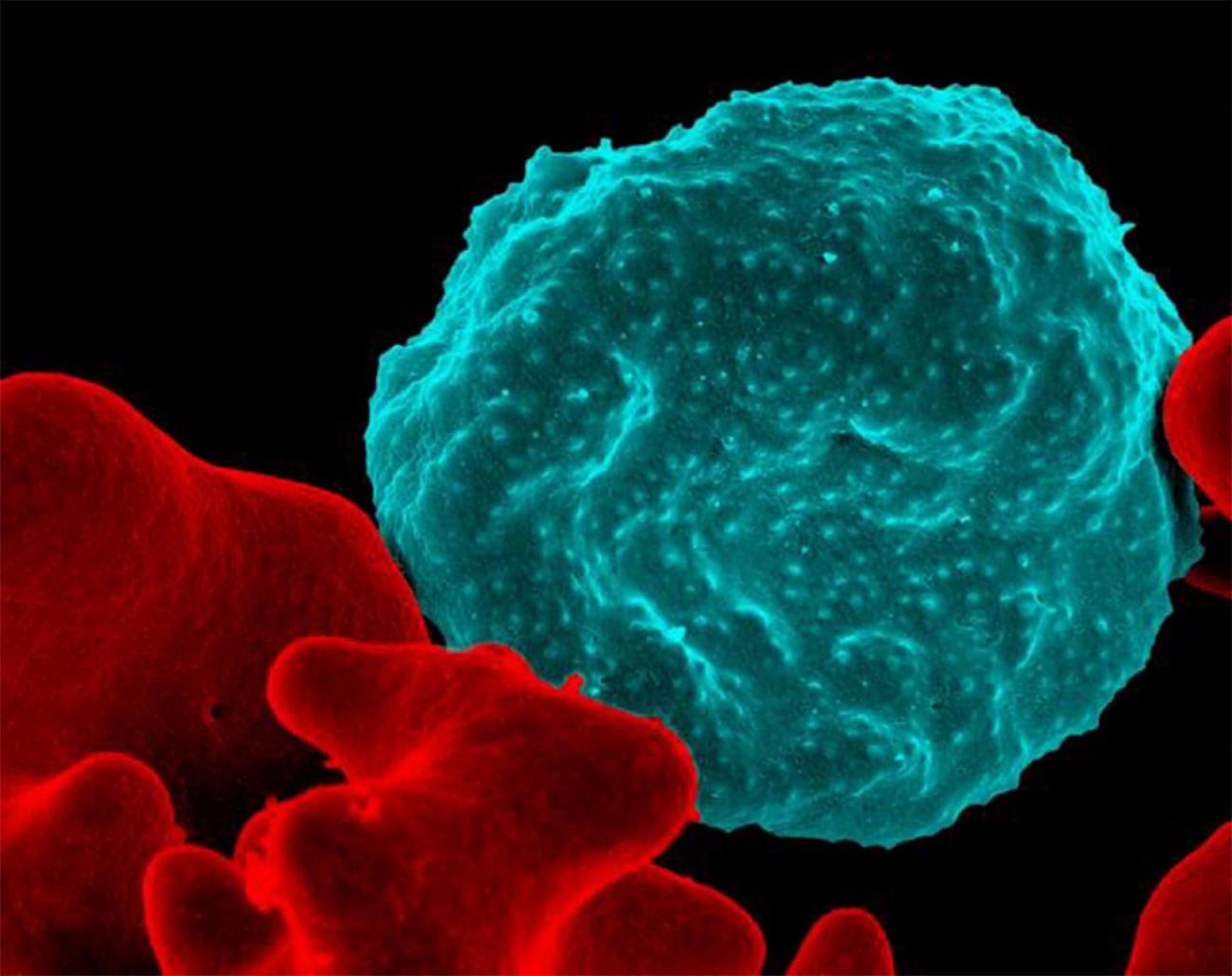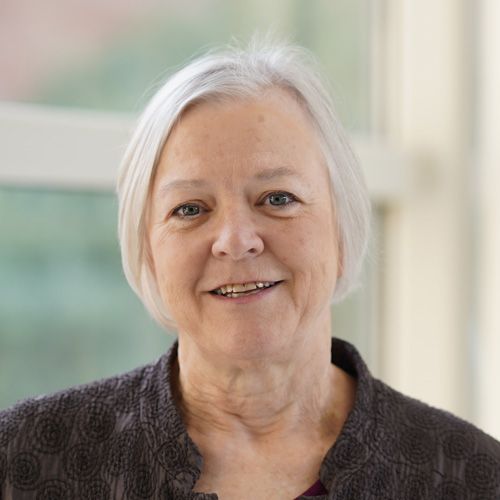Researchers discover genetic difference between human groups that affects inflammation
- Ancestral 'footprints' in genome may exacerbate health disparities
- Team compared genetic, molecular and epidemiological data on nearly 1,800 people
- They found a variation that may affect how immune system triggers inflammation
Editor's note: This press release was first issued by the journal PLOS Genetics and is reproduced here with permission. Top image: Colorized scanning electron micrograph of red blood cell infected with malaria parasites. Credit: National Institute of Allergy and Infectious Diseases.
SAN FRANCISCO and BUFFALO, N.Y. — In a new study published today in PLOS Genetics, Christine Ambrosone, PhD, of Roswell Park Comprehensive Cancer Center and colleagues identified a genetic difference between people with African and European ancestry that affects how the immune system triggers inflammation. They suspect these differences are rooted in how the immune system evolved and the evolutionary pressure exerted by malaria on ancestors who lived in Africa.
For thousands of years, the human immune system evolved to fight off constant assaults from a variety of infections, tailoring its response to defend against local threats. Thanks to modern hygiene, the immune system now faces far fewer attacks, but ancestral differences still remain, as demonstrated by differing disease rates between populations. To gain a better understanding of how different populations’ immune systems respond to current lifestyles, researchers combined genetic, molecular and epidemiological data from in 914 people with African ancestry and 855 people with European ancestry from the African American Breast Cancer Epidemiology and Risk (AMBER) Consortium. They analyzed blood samples to detect 14 different chemical messengers involved in inflammation and identified significant differences between the populations in seven of those chemicals. Lifestyle factors such as age, education level, obesity, smoking and alcohol use could account for many of the differences, but the researchers also identified a genetic variant that occurred primarily in people with African ancestry. The variant controlled the levels of two key chemical messengers involved in recruiting white blood cells to sites of inflammation, and previous studies suggest it evolved to protect African individuals from contracting malaria.
The immune differences between people with European and African ancestry may have important implications for health that deserve further study. Inflammation has evolved as a response to injury and infection but is also implicated in several types of cancer and chronic disease. Ancestral “footprints” in the genome, such as the one identified in the study, may be exacerbating the health disparities observed between these two groups.
Dr. Ambrosone, the Roswell Park Alliance Foundation Endowed Chair in Cancer Prevention at Roswell Park and corresponding author on the study, notes: “We conducted this research based upon the hypothesis that adaptation over millennia to protect from infectious diseases in Africa, resulting in more robust immune response, could be related to more aggressive breast cancer in a modern environment. When we compared levels of certain inflammatory markers between women of African and European descent, we noted many differences. After we ruled out the effects of lifestyle factors, we found that much of these differences could be tied to the Duffy antigen receptor, whereby African-Americans have a genotype that helps to protect from malaria.”
“These findings indicate that evolutionary adaptation many thousands of years ago shaped our immune systems, and may still have considerable influences on immune function today,” explains first author Song Yao, PhD, Associate Professor of Oncology in the Department of Cancer Prevention and Control at Roswell Park. “The next research question we are pursuing is whether those evolutionary marks play any significant role in affecting breast cancer health disparities.”
The study, “Genetic ancestry and population differences in levels of inflammatory cytokines in women: Role for evolutionary selection and environmental factors,” is available at journals.plos.org. This work was supported by the National Cancer Institute (grant numbers P01CA151135, 01CA058420, UM1CA164974, R01CA098663, R01CA10059, P50CA58223 and P30CA16056); the University Cancer Research Fund of North Carolina and the Breast Cancer Research Foundation.
###
About PLOS Genetics
PLOS Genetics (http://www.plosgenetics.org) reflects the full breadth and interdisciplinary nature of genetics and genomics research by publishing outstanding original contributions in all areas of biology. We publish human studies, as well as research on model organisms—from mice and flies, to plants and bacteria. Our emphasis is on studies of broad interest that provide significant insight into a biological process or processes. Topics include (but are not limited to) gene discovery and function, population genetics, genome projects, comparative and functional genomics, medical genetics, disease biology, evolution, gene expression, complex traits, chromosome biology, and epigenetics.
About Roswell Park
Roswell Park Comprehensive Cancer Center is a community united by the drive to eliminate cancer’s grip on humanity by unlocking its secrets through personalized approaches and unleashing the healing power of hope. Founded by Dr. Roswell Park in 1898, it is the only National Cancer Institute-designated comprehensive cancer center in Upstate New York. Learn more at www.roswellpark.org, or contact us at 1-800-ROSWELL (1-800-767-9355) or ASKRoswell@roswellpark.org.
Annie Deck-Miller, Senior Media Relations Manager
716-845-8593; annie.deck-miller@roswellpark.org


